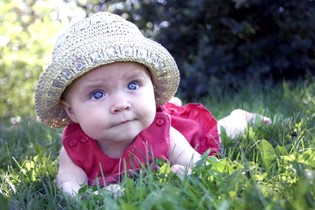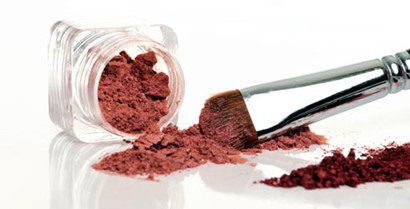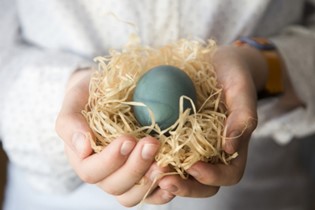Key steps to raising sons from happy boys to confident men

Boys and girls are different - not only physically, but psychologically, and emotionally too. Psychologist Steve Biddulph insists that our approach to parenting boys also needs to be different. In this edited extract from the book Raising Boys, he outlines the key steps to raising sons from happy boys to confident men.
Have you ever browsed through a family photo collection and seen photos of a boy growing up, from babyhood right through to manhood? If you have, you'll know that boys don't grow up in a smooth way. They go in surges - looking the same for a while, then suddenly they appear to change overnight. And that's only on the outside. On the inside, great changes are happening, too. But developing maturity and character aren't as automatic as physical development; a boy can get stuck. Everyone knows at least one man who is large in body but small in mind or soul, who hasn't developed as a mature person. Boys don't grow up well if you don't help them. You can't just shovel in cereal, provide clean T-shirts, and have them one day wake up as a man! The trick is to understand what is needed - and when.
The three stages of boyhood
The first stage of boyhood is from birth to six - the span of time when the boy primarily belongs to his mother. He is "her" boy, even though his father may play a very big role, too. The aim at this age is to give strong love and security, and to "switch a boy on" to life as a warm and welcoming experience.
The second stage includes the years from six to 14 - when the boy, out of his own internal drives, starts wanting to learn to be a man, and looks more and more to his father for interest and activity. The purpose of this stage is to build competence and skill while also developing kindness and playfulness - you help him to become a balanced person. This is the age when a boy becomes happy and secure about being male.
"The aim is for your son to learn skills, responsibility and self-respect by joining more and more with the adult community."
Finally, the years from 14 to adult - when the boy needs input from male mentors if he is to complete the journey to being fully grown-up. Mum and Dad step back a little, but they must organise some good mentors in their son's life; if not, he will have to rely on an ill-equipped peer group for his sense of self. The aim is for your son to learn skills, responsibility and self-respect by joining more and more with the adult community.
These stages do not indicate a sudden or sharp shift from one parent to another, rather a shift in emphasis: The father "comes to the fore" more from six to 13, and the importance of mentors increases from 14 onwards. They help us know what to do. For example, we know that fathers of boys from six to 14 must not be just busy workaholics, or absent themselves emotionally or physically from the family.
Learning to Love
If a mother is the main caregiver, a boy will see her as his first model for intimacy and love. If she builds this close bond, then from toddlerhood on, if she sets limits with her son firmly but without hitting or shaming him, he will take this in his stride. He will want to please her, and will be easier to manage because the attachment is so strong. He knows he has a special place in her heart. Mum's interest and fun in teaching and talking to him helps his brain to develop more verbal skills and makes him more sociable. Boys need more help than girls to "catch on" to social skills.
Scientists studying mothers and babies have observed what they call "joint attention sequences". This is love in action, love you can see. Researchers filmed mothers and babies going about their day, and discovered that joint attention sequences happen between 50 and 100 times a day.
You will have certainly experienced this with your own child. The baby seeks out your attention with a gurgle or cry. You look towards him and see that he is looking at you. He is thrilled to make eye contact, and wiggles with delight. You talk back to him. Or maybe you are holding him or changing him, and you feel that closeness as you make eye contact, and sing to or tickle him. He impacts on you, and you on him.
"When a baby is happy, growth hormone flows through his body and right into his brain, and development blossoms."
This is one of the most significant things a parent ever does for their baby. When a baby is happy, growth hormone flows through his body and right into his brain, and development blossoms. When he is stressed, the stress hormone - cortisol - slows down growth, especially brain growth. So interaction, laughter, and love are like food for a baby's brain. All this interaction is being remembered in these new brain areas. Soon he will be adding language, music, movement, rhythm and, above all, the capacity for feeling good and being empathic with other people. Boy babies are just a little slower, a little less wired for sociability than girls, and so they especially need this help.
The process keeps going right into little-boyhood. A mother shows delight when her child catches lizards or makes mud pies, and admires his achievements. His father tickles him and play-wrestles with him, and is also gentle and nurturing, reading stories and comforting him when he is sick. The little boy learns that men are kind as well as exciting, that dads read books and are capable in the home; and that mothers are kind but also practical, and part of the bigger world.
"Mothers are usually the primary parent, but a father can also take this place. What matters is that one or two key people love the child and make him central for these few years."
To sum up, the first lessons boys need to learn are in closeness - shown through trust, warmth, fun and kindness. Under six years of age, gender isn't a big deal, and it shouldn't be made so. Mothers are usually the primary parent, but a father can also take this place. What matters is that one or two key people love the child and make him central for these few years. That way, he develops inner security for life, and his brain acquires the skills of intimate communication and a love of life and the world. These years are soon over. Enjoy your little boy while you can!
Steve Biddulph is a world-reowned psychologist and author, with books published in 27 languages. He has had significant influence in the way we look at children, especially the raising of boys. Steves believes that as the world economy slows down, we need to rediscover community and find more time to love our families. He lives in Evandale, Tasmania, with his wife and co-author Shaaron Biddulph.
Extract from Raising Boys by Steve Biddulph. Published by Finch Publishing.

AS FEATURED IN ISSUE 4 OF OHbaby! MAGAZINE. CHECK OUT OTHER ARTICLES IN THIS ISSUE BELOW

















